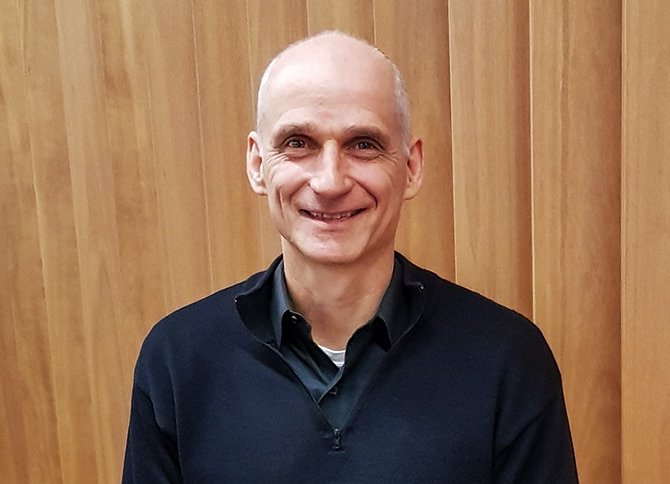28 Jun 2018
Rob Dantzer is Manager, Engineering and CAD Programmes at Ara Institute Canterbury. We asked him to share some of his thoughts on academia, his involvement with Engineering New Zealand and what he does in his spare time.

Rob Dantzer
What does your role at Ara involve?
My title is “Manager Engineering and CAD Programmes”, but what I really do, and what I tell my mother I do, is get engineering students jobs and engineering employers employees. My day to day role is actually fairly operational, that is keeping the place running (staffing, scheduling, enrolments). I do manage to squeeze in some teaching and project work which helps advance the employability of our students.
Why did you enter the world of academia?
By accident, I suppose. The local truck manufacturer (Western Star Trucks) was shutting down and moving to the US and I had no intension of moving. I was determined to stay in the beautiful British Columbia interior and there was an opening at the local college in the mechanical engineering technologist programme. A good story, however, in hindsight it may have been more simple than that – the influence of my parents. My father was an engineer (automotive testing and manufacturing) and my mother was a teacher. I didn’t fall far from the tree.
What is the best thing about teaching?
Graduation: seeing the satisfaction and pride on the former students faces, meeting parents and siblings, hearing about the new job, being part of their photos and having mum and or dad come up to me and offer me a personal thank you. Similarly, seeing those students who in first year seemed to be wasting their time, my time, their money and the taxpayer’s money turn things around (sometimes it does take a couple of years) and become a graduate that I’m enthusiastic about recommending for employment. High expectations and natural non-judgemental consequences are a teacher’s best tools.
As an academic from Canada, you would understand the benefits of international mobility well. How do you explain international mobility to your students?
I tell them about the Accords and how they work. I point out the size of the New Zealand marketplace relative to the world and the international nature of engineering/an engineering office. Much of New Zealand’s industry includes international trade and the New Zealand marketplace is very dependent on exports, of goods and services. For example, we have a small electronics firm here in Christchurch that takes our graduates. Its market started out as 100 percent New Zealand and now it’s only five percent. All the design work is done here. The world’s a big place and a qualification in engineering in New Zealand prepares you for it.
How have you become involved with Engineering New Zealand as an academic?
I’m a Chartered Member and I’m on the Standards and Accreditation Board. I do also try to be involved with some of the local Engineering New Zealand student events – Speed Interviewing being one of particular note.
How have teaching methods changed since you were an engineering student?
This is actually a tough question – my first reaction is they haven’t. It’s always been about teachers/instructors who have a passion for what they do, value and foster respect, have high expectations and are ok with change. All the rest is just noise, really. There is one difference that I would point out though, and that is the education industry that I see today is much more attuned to our other “customer” – that is we’re here for industry/society in addition to our student customer.
What do you do in your spare time?
I like to garden. I’d like to see my section produce enough food to decrease my food bill by at least a third. I’m getting back into running – if been encouraged by one of my work colleagues who’s considerably older than me and running marathons and by my 17-year-old daughter who has done very well in her first two half-marathons. I’ve also joined the local volunteer fire brigade. The training, leadership and comradery is outstanding and it really helps with my work-life balance. Also driving with lights and sirens is pretty cool!
Final words - What can be done to improve engineering education in New Zealand?
My industry experience keeps on ringing in my ears telling me teachers of undergraduate level programmes need to have three pillars of practice: 1) engineering subject matter expertise, 2) teaching competence and 3) professional competence and currency. Does New Zealand’s engineering undergraduate system place too much emphasis on research, particularly research active staff? In preparation for the workplace our graduates need to be able to critically evaluate and validate information, design and conduct experiments and tests (solve problems), have a familiarity with research methods and be able to report on such activities – so a taste of research is good, and we need some experience in this area. I’m oversimplifying things a bit, but I see the third pillar in undergraduate programme degree delivery is currently research – this needs to shift to professional competency and currency, of which research may be a part.




